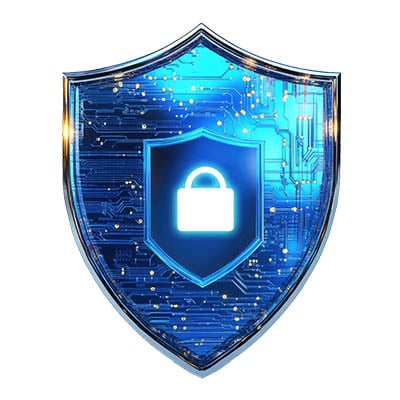Four of the Best Practices to Secure Password-Protected Accounts

Passwords are the most important security tool used to secure digital assets. They are critical for small businesses, as weak or mishandled credentials can lead to serious security problems. Everyone must understand and follow the best practices for creating and managing passwords. This month, we will go through a few of them.
Create Strong and Unique Passwords
The first step is to create strong, unique passwords. A strong password should be at least 12 characters long and include a mix of uppercase and lowercase letters, numbers, and special symbols. Avoid using easily guessed information, such as birthdays, names, or common words. Passwords should be unique for every account, ensuring that others remain secure if one account is compromised. Using a password generator can make this process easier by creating random, complex passwords that are difficult to crack.
Use a Reliable Password Manager
Equally important is the consistent use of a password manager. Password managers are tools that securely store and organize passwords, allowing workers to access their credentials easily without remembering them all. These tools also reduce the risk of reusing passwords or storing them in insecure places, such as sticky notes or spreadsheets. Many password managers can even alert users if a password has been compromised, enabling quick action to mitigate potential risks. Not all password managers are created equal, so choosing one that is reliable and positively rated by users is a good start.
Turn on Multi-factor Authentication
Multi-factor authentication (MFA) is another essential layer of security. By requiring a second form of verification, such as a code sent to a mobile device or a biometric scan, MFA ensures that even if a password is stolen, unauthorized access is still prevented. Businesses should make MFA mandatory for all sensitive accounts, including email, financial systems, and cloud-based services.
Update Passwords Regularly
Regularly updating passwords is another critical practice. Workers should change their passwords every few months, particularly for accounts that handle sensitive or financial information. This minimizes the risk of long-term exposure if a password is compromised without immediate detection. Encouraging employees to stay vigilant about phishing attempts is also vital. Workers should avoid clicking on suspicious links or sharing passwords through insecure channels, as phishing attacks are a common way hackers steal credentials.
Offer Training to Get the Best Results
Training and awareness programs are crucial in building a culture of security within the workplace. Small businesses should regularly educate employees about the latest password practices and cyber threats. By reinforcing the importance of strong password habits, companies can ensure their teams remain a strong line of defense against breaches.
Creating and managing passwords effectively is a shared responsibility between workers and the business. By adopting strong password habits, using reliable tools, and staying informed about potential threats, small businesses can protect themselves and their clients from the growing risks of cybercrime.
If you would like help coming up with a plan to secure your business’ digital assets, the IT security professionals at White Mountain IT Services can help. To start a dialogue, give us a call today at (603) 889-0800.

